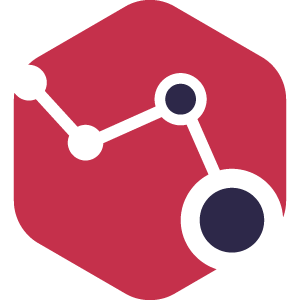The New York Times
Prior Listings
- Staff Software Engineer, Data Governance and Infrastructure
- Data Engineer, Wirecutter
- Software Engineer, Data Collections
- Software Engineer, Data Pipelines Infrastructure
- Senior Data Engineer, Subscriber Data Products
- Data Engineer, Subscriber Data Products
- Senior Data Engineer, Subscriber Data Products
- Software Engineer - Data Governance
- Senior Data Engineer, Subscriber Data Products
- Senior Software Engineer - Data Pipelines Infrastructure
- Senior Engineering Manager, Data Governance and Infrastructure
- Senior Software Engineer, ML Infrastructure
- Data Engineer, Wirecutter

Senior Software Engineer, ML Infrastructure
Senior Software Engineer, ML Infrastructure
The mission of The New York Times is to seek the truth and help people understand the world. That means independent journalism is at the heart of all we do as a company. It’s why we have a newsroom that’s 1,700 strong and sends journalists to report on the ground from nearly 160 countries. It’s why we focus deeply on how our readers will experience our journalism, from print to audio to a world-class digital and app destination. And it’s why our business strategy centers on making journalism so good that it’s worth paying for.
Note for US based roles: Any offer of employment is contingent on providing proof of Covid-19 vaccination prior to your start date, subject to approved medical and/or religious exemptions, in accordance with applicable law.
Job Description
At the New York Times, we use machine learning to enhance the experience of 150 million digital readers (and growing) from around the globe that come to us to understand the world and seek truth. Our machine learning services power tools that help our newsroom bring the best content and grow our readership through content recommendations, personalization and targeting. By joining our team, you'll help strengthen a company whose mission has stood the test of time and you will ensure the journalism of a 1700 person newsroom reaches as many people as possible.
About the Role
Responsibilities:
We are looking for engineers to join our Machine Learning Infrastructure team to help solve creative challenges around ML pipelines and backend infrastructure for the Times. A few examples are:
Build APIs to allow and enrich real-time recommendations and classification
Deploy and maintain data pipelines for training, scoring, and testing algorithms
Implement generalized systems for MLOps: feature storage, serving infrastructure, and deployment
Scale and maintain the current machine learning services and systems to serve real-time, one-to-one homepage traffic
Collaborate with teammates and diverse partners to create requirements and translate them into pragmatic technical solutions
Mentor junior engineers and engage with company-wide technical communities
Basic Qualifications:
Are proficient in Go or Python comfortable with good abstraction fundamentals
Have GCP or other cloud computing platforms experience (eg. AWS)
Have used Git, worked with Kubernetes, Docker, and CI/CD systems such as Drone or Jenkins
Have experience building real-time machine learning systems and infrastructure
Have experience with systems for scheduling, data processing, and other validation tasks
Are interested in or have worked with any of the following technologies and frameworks: Terraform, Airflow, SQL/BigQuery, CI/CD (Drone), TensorFlow, scikit-learn
Embrace mentorship through design sessions, code reviews, and community building
You'll want to work with us if you:
Take ownership and support solutions you develop
Are enthusiastic about technology and love to grow as an engineer
Value collaboration with other members of the team
Have a product mindset (outcomes over output)
Communicate well
This role may require limited on-call hours. An on-call schedule will be determined when you join, taking into account team size and other variables.
#LI-AM1
The New York Times is committed to a diverse and inclusive workforce, one that reflects the varied global community we serve. Our journalism and the products we build in the service of that journalism greatly benefit from a range of perspectives, which can only come from diversity of all types, across our ranks, at all levels of the organization. Achieving true diversity and inclusion is the right thing to do. It is also the smart thing for our business. So we strongly encourage women, veterans, people with disabilities, people of color and gender nonconforming candidates to apply.
The New York Times Company is an Equal Opportunity Employer and does not discriminate on the basis of an individual's sex, age, race, color, creed, national origin, alienage, religion, marital status, pregnancy, sexual orientation or affectional preference, gender identity and expression, disability, genetic trait or predisposition, carrier status, citizenship, veteran or military status and other personal characteristics protected by law. All applications will receive consideration for employment without regard to legally protected characteristics. The New York Times Company will provide reasonable accommodations as required by applicable federal, state, and/or local laws, and will consider qualified applicants, including those with criminal histories, in a manner consistent with the requirements of applicable "Fair Chance" laws.


